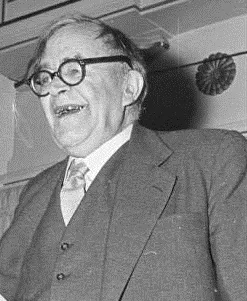
Celebrating Human Rights Day: A Global Commitment to Equality
Human Rights Day is observed globally on December 10th each year, marking the anniversary of the adoption of the Universal Declaration of Human Rights (UDHR) by the United Nations General Assembly in 1948. This pivotal document proclaimed fundamental rights and freedoms inherent to all individuals, irrespective of nationality, ethnicity, or religion. On this day, we reflect on the importance of human rights and reaffirm our commitment to uphold them.
The Significance of Human Rights Day
The universal declaration serves as a beacon of hope aiming to safeguard the dignity and rights of every human being. Human Rights Day provides an opportunity to educate the public about their rights and to empower individuals to advocate for justice and equality. The day underscores that human rights are not merely a privilege for the few, but a necessity for all.
History of Human Rights Day
Human Rights Day was first celebrated in 1948, shortly after the UDHR was adopted. This significant document consisted of 30 articles detailing various freedoms and rights including the right to life, liberty, and security; freedom from torture; freedom of opinion; and the right to seek asylum among others. Despite the progress made since then, many people around the world still face human rights violations, which makes the observance of Human Rights Day more important than ever.
The Current Human Rights Landscape
While considerable progress has been made regarding people’s rights globally, challenges remain. Issues such as racial discrimination, gender inequality, and suppression of political dissent continue to emerge worldwide. Campaigns and events organized on Human Rights Day aim to raise awareness for these issues and encourage individuals to take action. International organizations, including Amnesty International and Human Rights Watch, play significant roles in advocating for those whose rights are not respected.
How to Observe Human Rights Day
Observing Human Rights Day can take many forms. Here are some actionable ways to participate:
- Educate Yourself and Others: Utilize this day to read about human rights issues affecting various communities globally and share your findings with friends and family.
- Participate in Local Events: Many organizations host events, rallies, and webinars focused on promoting human rights. Attending these can broaden your understanding and help support local human rights groups.
- Support Human Rights Organizations: Consider donating to or volunteering for organizations that work tirelessly to defend human rights.
- Advocate for Change: Use your voice on social media to spread awareness about human rights issues or support petitions that address injustices.
- Reflect on Personal Actions: Consider how your lifestyle choices affect others' rights and strive to make ethical decisions.
The Role of Social Media in Human Rights Advocacy
Social media has become an essential tool in advocating for human rights. Platforms like Twitter, Instagram, and Facebook are used to mobilize support, share stories of injustices, and call for action. Campaigns utilizing hashtags can spread rapidly, raising awareness of crucial issues that may otherwise be overlooked by traditional media outlets.
Conclusion: The Ongoing Struggle for Human Rights
Human Rights Day serves as a reminder that the fight for human rights is ongoing and that collective action is needed to ensure these rights are preserved and respected. Each one of us can contribute to this cause, whether through advocacy, education, or action. Together, we can work towards a world where everyone enjoys the rights and freedoms to which they are entitled.






